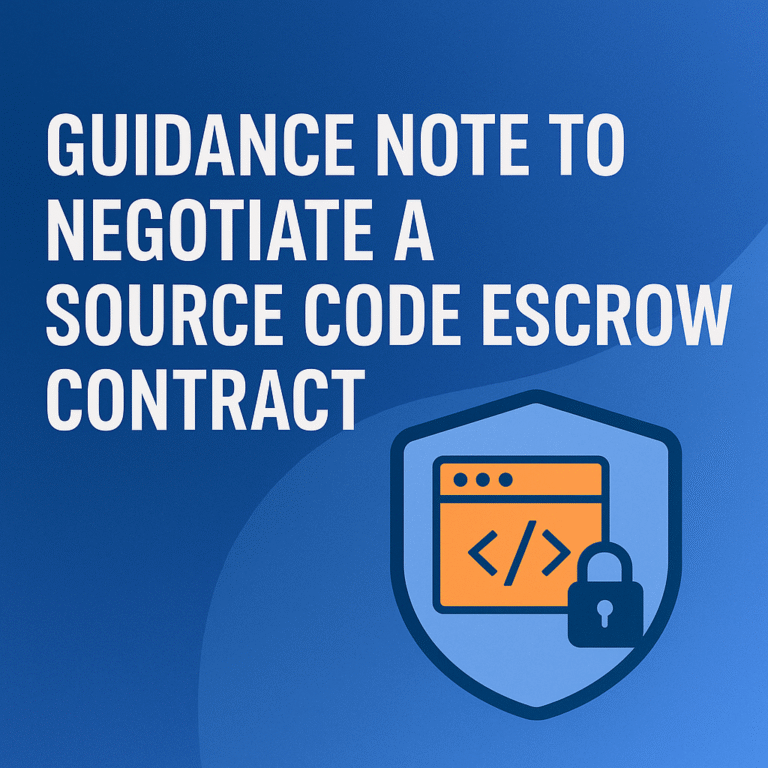In Nigeria’s growing digital economy, a source code holds the key to millions of Naira in business value. Depending on a developer’s proprietary interests, software is both an opportunity and a risk for every private or public enterprise developing fintech apps, a learning management system, public accountability solution, or an internal banking tool. A source code escrow agent stands in the widening digital assets’ gap as an assurance ombudsman.
Background
A source code escrow agreement allows a neutral third party, the escrow agent, to hold the source code on behalf of the developer (the depositor) and the developer’s client or customer (the beneficiary).
Think of source code like the secret recipe for your favourite snack. The app you use on your phone is like the snack you eat, but the source code is the step-by-step recipe the developer used to make the app.
Without that recipe, no one else can make or fix the snack if the original cook stops cooking. Source code escrow is like giving that recipe to a trusted third party for safekeeping to be shared if something goes wrong.
When specified conditions are triggered (such as developer insolvency, abandonment, or failure to support the product), the source code can be released to the client.
When properly negotiated, a source code escrow balances protection for the client with respect for the developer’s intellectual property. If poorly handled, it becomes a paper exercise that no one can rely on.
Fintech lawyers at SRJ Legal encourage our clients and partners to approach source code escrow arrangements with clear eyes. Below are the key considerations.
Mutuality and the Starting Point
Many Nigerian clients assume an escrow agreement is simply a guarantee of ownership. It is not.
The developer still owns the intellectual property unless otherwise agreed. The client’s rights typically extend only to use the source code for maintenance or continuity if release conditions are met. Mutuality is achieved when both sides recognise:
- The client’s need for operational continuity.
- The developer’s right to protect its proprietary asset from misuse or premature disclosure.
Clients often push for wide source code release triggers without realising this could discourage top developers from engaging at all.
Developers, on the other hand, sometimes resist escrow altogether, underestimating how much comfort it provides for enterprise-level clients.
Intellectual Property Rights and Assignment
We must distinguish between license rights and ownership rights.
- Licensing: Most escrow agreements release code under a pre-negotiated licence, strictly limited to maintenance and support.
- Assignment: If an assignment of IP is agreed (rare, but sometimes required for critical systems), this must be clear and usually attracts significant cost.
Blind spot: Nigerian businesses overlook how the licence terms upon release match their operational realities. If the released conditions are too narrow, the code may be useless even after release.
Release Conditions (Triggers)
Common release conditions include:
- Developer insolvency or bankruptcy.
- Failure to provide updates or support within an agreed timeframe.
- Breach of maintenance obligations.
- Express abandonment of the project.
Parties sometimes forget to include “change of control”. For example, when a developer is acquired or merges with the client’s competitor, or regulatory failure such as a fintech losing a CBN’s (Central Bank of Nigeria) licence.
Role and Responsibility of the Escrow Agent
The escrow agent is not just a post office or a typical Lagos dispatch rider. If properly engaged, the agent adds value in three ways:
- Deposit and Verification: Ensuring that what is deposited is the actual, complete, and functional source code. This often includes periodic updates and verification exercises (basic, advanced, or build verification).
- Security: Maintaining strict confidentiality and secure storage.
- Release Process: Acting swiftly and fairly when release conditions are triggered.
From our experience, Nigerian enterprises rarely budget for source codes’ periodic verification. Without periodic verifcation, the code may be incomplete or impossible to compile when needed.
Costs and Negotiation Dynamics
- Developers should factor escrow into pricing and maintenance fees.
- Clients should insist on periodic verification but expect to share costs.
- Escrow agents must be transparent about fees for deposit, storage, verification, and release.
We have seen negotiations stalled because no one allocated responsibility for ongoing updates. A dormant deposit is almost as risky as having no escrow at all.
Achieving Balance in Negotiation
The most effective escrow agreements are those where:
- The client secures continuity and risk management.
- The developer preserves its IP and avoids over-exposure.
- The escrow agent ensures technical and procedural integrity.
Each side should enter negotiations understanding that escrow is not about “winning” but about creating a safety net that protects everyone.
Conclusion
For Nigerian businesses and developers operating in fintech, education, or other technology-driven sectors, source code escrow is a standard risk-management tool.
However, it needs to be properly structured. By clarifying IP rights, agreeing to realistic release triggers, budgeting for verification, and engaging a competent escrow agent, parties can turn escrow from a dusty contract into a genuine continuity safeguard.
At SRJ Legal, our escrow practice bridges Nigerian realities with the tested approaches of US and UK law firms, giving clients confidence that their software assets are protected without undermining developer incentives.
We focus on fintech, online banking law, and licence application. We complement our fintech and online banking practice with education law and commercial litigation (dispute). At the same time, we provide corporate counsel services to businesses and families.
At SRJ Legal, we also provide tailored source code escrow services for businesses, technology providers, and clients across Nigeria, ensuring legal protection, compliance, and peace of mind.

